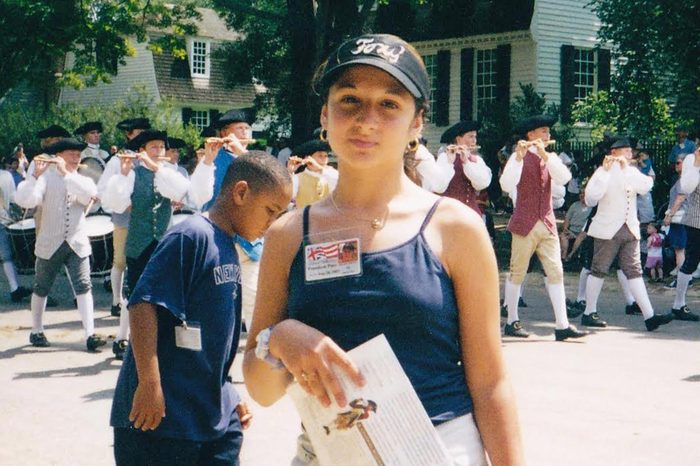
That morning
I was 12 years old, sitting in school three blocks away from the World Trade Center on September 11, 2001, when the planes hit the twin towers. Our teachers had us all gather in the cafeteria. I remember parents rushing in to pull out their children amid the chaos. I began panicking, wondering how I would get home to my apartment building on the other side of the Towers where my elderly grandparents also lived. Then, my neighbor and her 13-year-old son appeared in the doorway, arriving late for the day after an appointment, to walk me home. We left just minutes before the first tower collapsed. What we ran from, saw, heard, smelled, and experienced as we pushed through crowds and ran for our lives from the collapsing towers, has become common knowledge in the past decade. But it’s very different to live through it in real-time as a child, with no idea if we would be killed in an instant, what was going to happen next, and if the world was going to end before I could see my family again and say goodbye. I survived, but that morning was just the beginning of my trauma.
In 2016, I wrote a book, After 9/11 about my experiences and that of over a dozen of my former classmates, I began to receive emails from children across the country asking me questions and telling me their feelings about the day. I started video chatting with them in their classrooms as well. These are the questions I’m asked most frequently—along with my heartfelt answers. Also, read the story of the woman who was personally blamed for the terrorist attacks on 9/11.
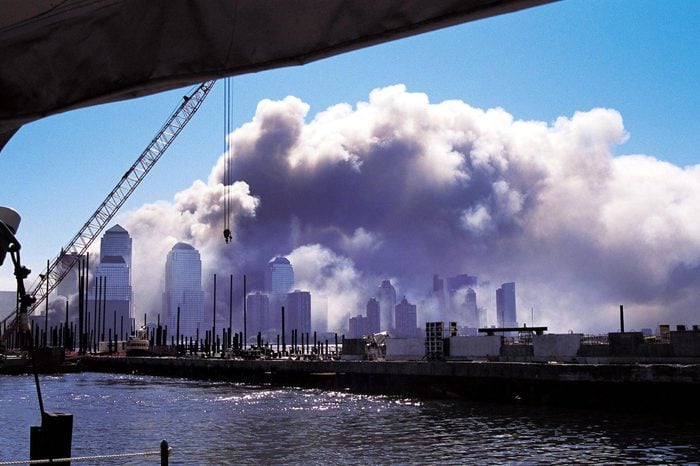
What was your first reaction when the plane hit the First Tower?
When the first plane hit and we felt the impact in our classroom, my first reaction was surprise, because I didn’t know what was going on. That very quickly led to fear and panic as we did learn what happened, so I would say I was nervous, scared, and shocked. Those feelings amplified as I tried to walk home with my neighbors and more surprising things happened, like the police not letting us get home even though we told them we lived there because they were told to direct everyone to go uptown and out of harm’s way.
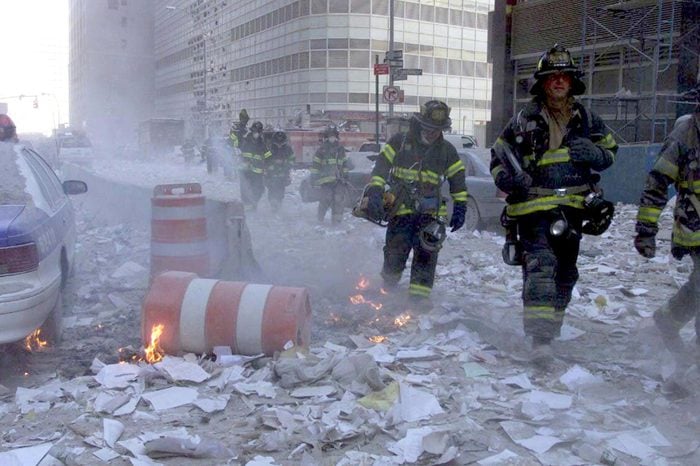
What happened to your classmates whose parents weren’t able to come and get them?
These classmates were evacuated, which means the bomb squad led them out of the building and uptown away from the Towers, but they were also in the street close by when the Towers began to fall, so they all had to run as well. Those students were taken to another school where they waited for their parents to pick them up, once their parents were able to figure out where they were. Some of the kids who lived in Battery Park or Tribeca lost their homes for about six months and had to live moving from hotel to hotel.
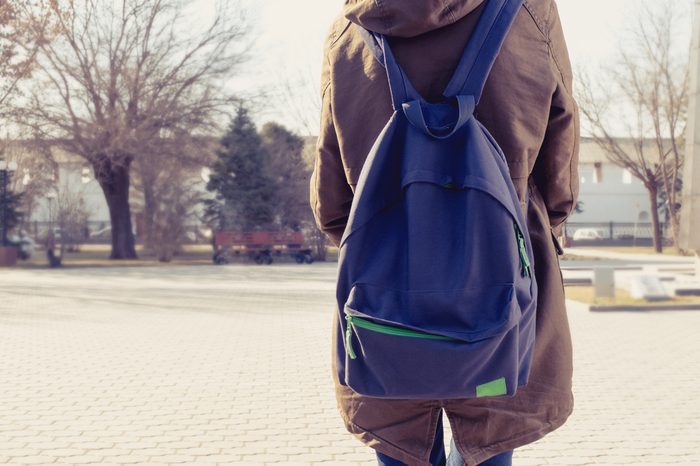
What did you feel when you knew all your family members were OK?
After a night of anxious waiting, my dad finally made it home the next morning, covered in a thick film of debris, dust, and sweat. I was very relieved when I knew all of my family members were OK. I was very lucky because so many children could not say the same, which is very sad. To tell you the truth, I still worried about my family members even after I knew they were OK because I was anxious about what would happen next and there were threats of additional attacks. Read these hope quotes to help get you through a tough time.
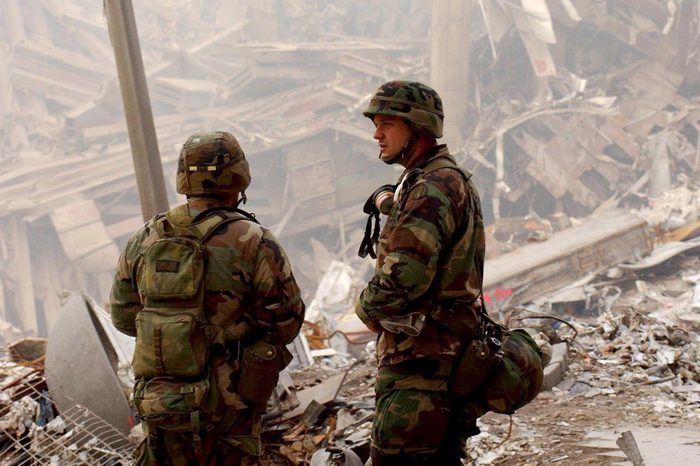
What happened the next day and in the days after?
As days turned into weeks, we only had the food and medication my father helped coordinate from New York Downtown Hospital across the street. The National Guard posted up in our neighborhood, there were Humvees and rifles—and the sound of a plane sent me into a hysterical panic. People randomly ran down the street running and screaming and crying, and we kept hearing we might have to evacuate, that another building might fall, that more bomb threads were coming in. I wasn’t sleeping, and when I did, I had nightmares and flashbacks, feeling like I was just waiting to die. While it seemed like the rest of New York City above Canal Street and the rest of the world resumed “life as normal,” everything had stopped in our neighborhood, including any cars, subways, or busses being allowed into the area. The power kept going in and out, debris was everywhere, phone lines worked erratically, all of the stores we’d normally go to for food or other necessities were closed down, and we didn’t have school for two weeks.
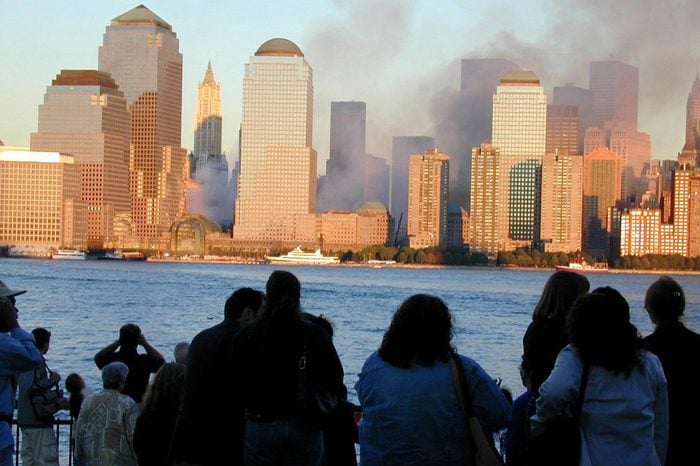
How long did the haze from the smoke in Manhattan stay?
The haze stayed in our neighborhood for a very, very long time. Six months later, there was still debris in the air and black smog. The air quality was very dangerous for a long time, but many people, including my family, didn’t leave because they didn’t have anywhere else to go.
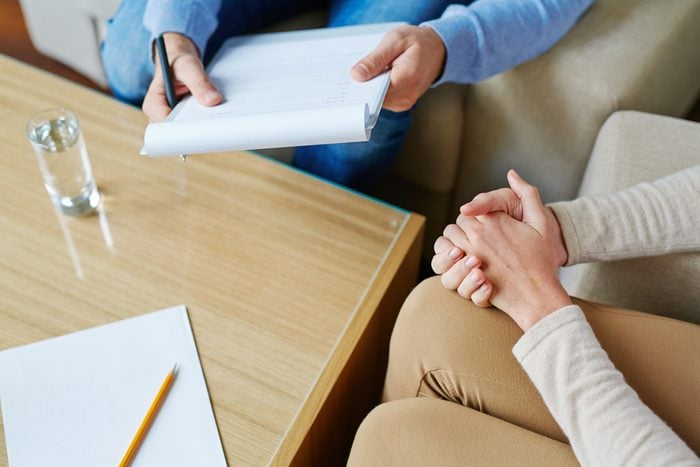
What would you tell people who have disorders because of 9/11 or other traumatic events?
While certain people spoke publicly about how New Yorkers and Americans will not be changed or deterred, the aftermath is a very real thing, no matter how brave we all want to be. Being brave and carrying on with our lives doesn’t mean that we can’t still worry about the safety of our loved ones and our own community. The symptoms of post-traumatic stress disorder (PTSD) can be complex, and they can sometimes take years, even decades, to surface. But if you notice that something isn’t right, I would suggest finding a therapist to talk to who specializes in trauma and PTSD. Don’t be afraid to reach out. Learn what 11 steps you should take in order to heal from a traumatic experience.
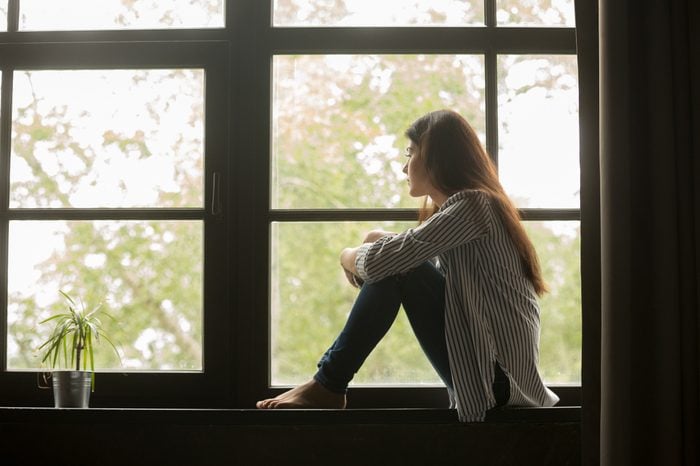
How did you ever stop thinking about it?
Unfortunately, the trauma was so big and ongoing that it was hard for me for a very long time. When we survive something and try to move forward, that doesn’t always automatically mean that we really have; we are changed, and our lives are changed. I don’t think I’ll ever forget or ever stop thinking about it, but I have learned to move forward with the thoughts I do have in a way that makes my life a lot easier. I have personally been able to get better and use my experience and to help other people, especially young people, and bring hopeful stories into the world when there is so much bad news.
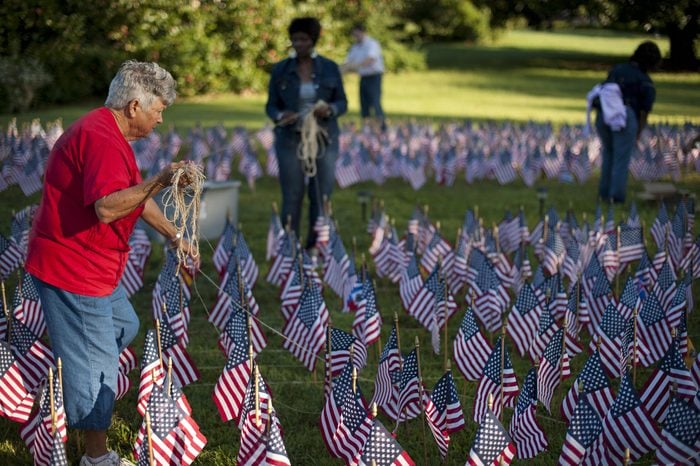
I still do not understand why the terrorists would do such a horrible thing. Do you ever go back to that day and wonder why it happened?
We do in fact know why, to some extent, the people behind the attacks did what they did. But that doesn’t make it any less sad or scary. Sometimes bad things happen and we will never really know why they do. I wish I could understand it more, too. What is important to remember is that for all of the suffering out there, so many good people also exist who step in to help, and to try to make the world a better place. We have to be as strong as we can be and be good people in the world ourselves. Here are 13 things that surviving the terrorist attacks taught me.
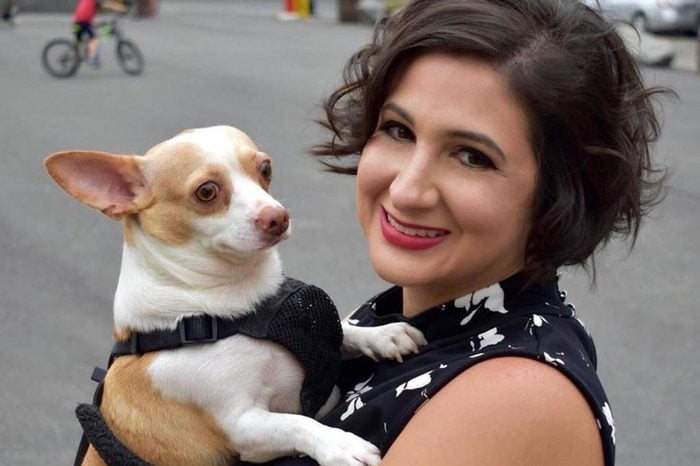
You went through an awful event at such a young age, how was your life affected throughout the years?
For a long time, many of my thoughts were scary and sad. A lot of the things I thought and the way my body and brain kicked into survival mode that day stayed with me for a long time. Fortunately, now, as a 32-year-old woman with my own family and happy life, I look back and see the way that years of hard work to make changes and get better in therapy has helped me become a new person with a new life, but without forgetting what I went through to get here.
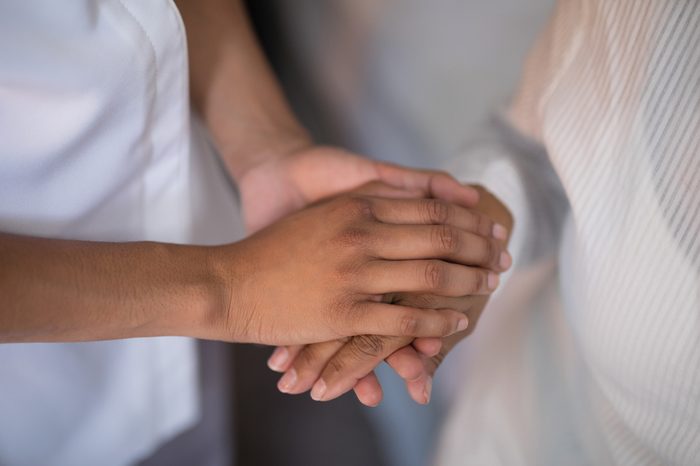
How did you put the past behind you?
I had a teacher in college who worked with me on the beginnings of the book I wrote who told me that while our past can be painful, we have to take what we can from it and remember what’s important. For example, if you broke your arm climbing a giant tree, or burned yourself touching a hot stove, you’d want to remember that next time so you could decide whether to do it again. In this case, something bad happened that I could not control, and that’s what made it so hard to put behind me, I think. But through support and therapy, I did learn to take what would help me from my past and cope with all of the horrible parts the live a life where I felt safe again, or at least as safe as I could.
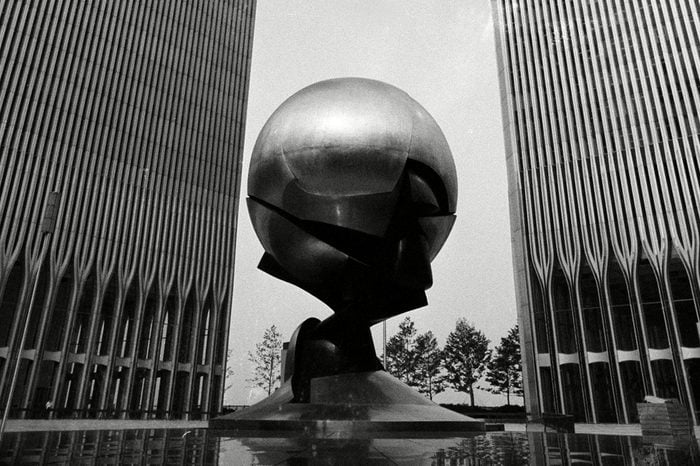
What do you miss the most about the Twin Towers?
I miss the fountain with the gold sphere—my mom would always tell me not to touch it because it was dirty—but it had water cascading down it so I would inch my fingers closer when I thought she wasn’t looking. We would get special donuts there, and we’d go read at this bookstore that had a special children’s section. I was so young that it didn’t seem like a special place I needed to remember, just another place in the neighborhood, and it is very true that we sometimes don’t realize how much we will miss something until it’s gone.
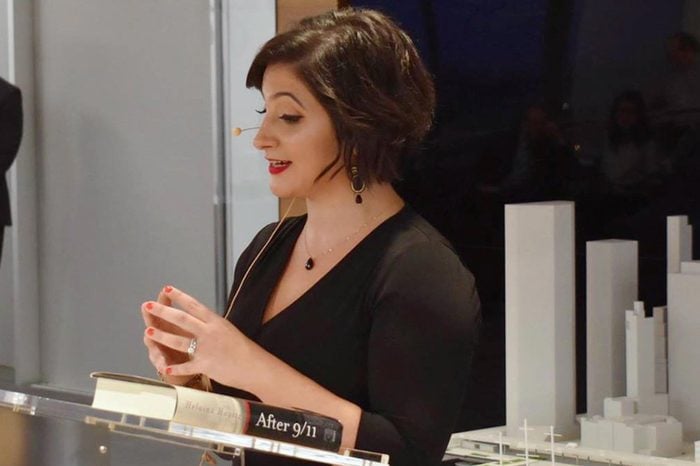
What made you start writing about 9/11 and what happened? Was it hard to write a book about your experiences?
In college, I decided to start writing about my experiences because my reaction to the terror was very severe and lasted for a very long time. When I got better, I realized there are many children and teenagers in this country who are still living with PTSD, which is a long-term reaction to terror and other bad things that sometimes happen. I hope that writing about 9/11 helps a lot of other people who may be having a difficult time, or who want to learn more about what happened that day and in the days after. I had lived the most painful parts already, and this was another way that I was able to heal them. Read about twists of fate that saved these people’s lives on 9/11.
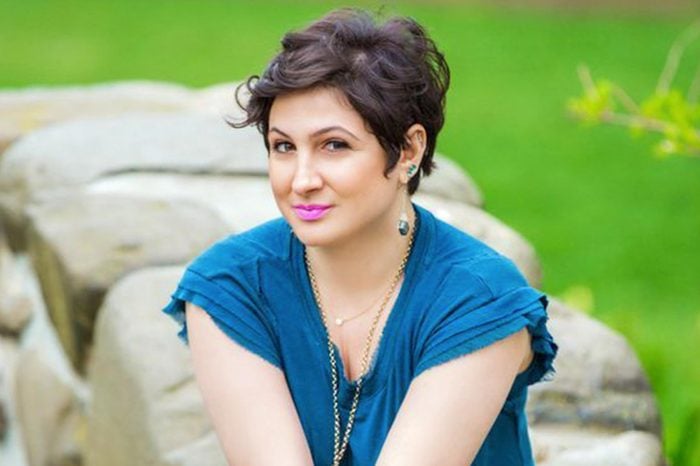
How did 9/11 change your perspective on life and the way you see people?
I learned to see the good in awful situations. I learned to empathize with people who were being mean, and I learned how to help someone else when I felt upset, and that doing so would make me feel better. Seeing what’s “wrong” is easy, but it takes an effort to see what’s right, and that’s honestly the most useful thing I’ve learned in my recovery process. I chose a career of writing about news that inspires, helps raise awareness and funding for nonprofits, and builds people up rather than scare them. The bad things going on in the world don’t have to affect the good things you bring into it. Focus on bringing as much good as you can into your own world, your everyday life, and the people who enter or pass through it.
A lot of children ask me if I felt afraid even though I was so brave. To all of them, I said the same thing: having courage doesn’t mean you’re afraid. Being brave is when you keep going despite the fact that you are afraid. Next, learn these facts about America that most Americans don’t know.
Helaina Hovitz Regal is an editor, writer, and author of the memoir After 9/11.